Ethiopia’s cry for food falls on the world’s deaf ears
The founder of children’s charity Mary’s Meals is sounding the alarm over the hunger crisis in Tigray and urging immediate action, writes Gary Armstrong
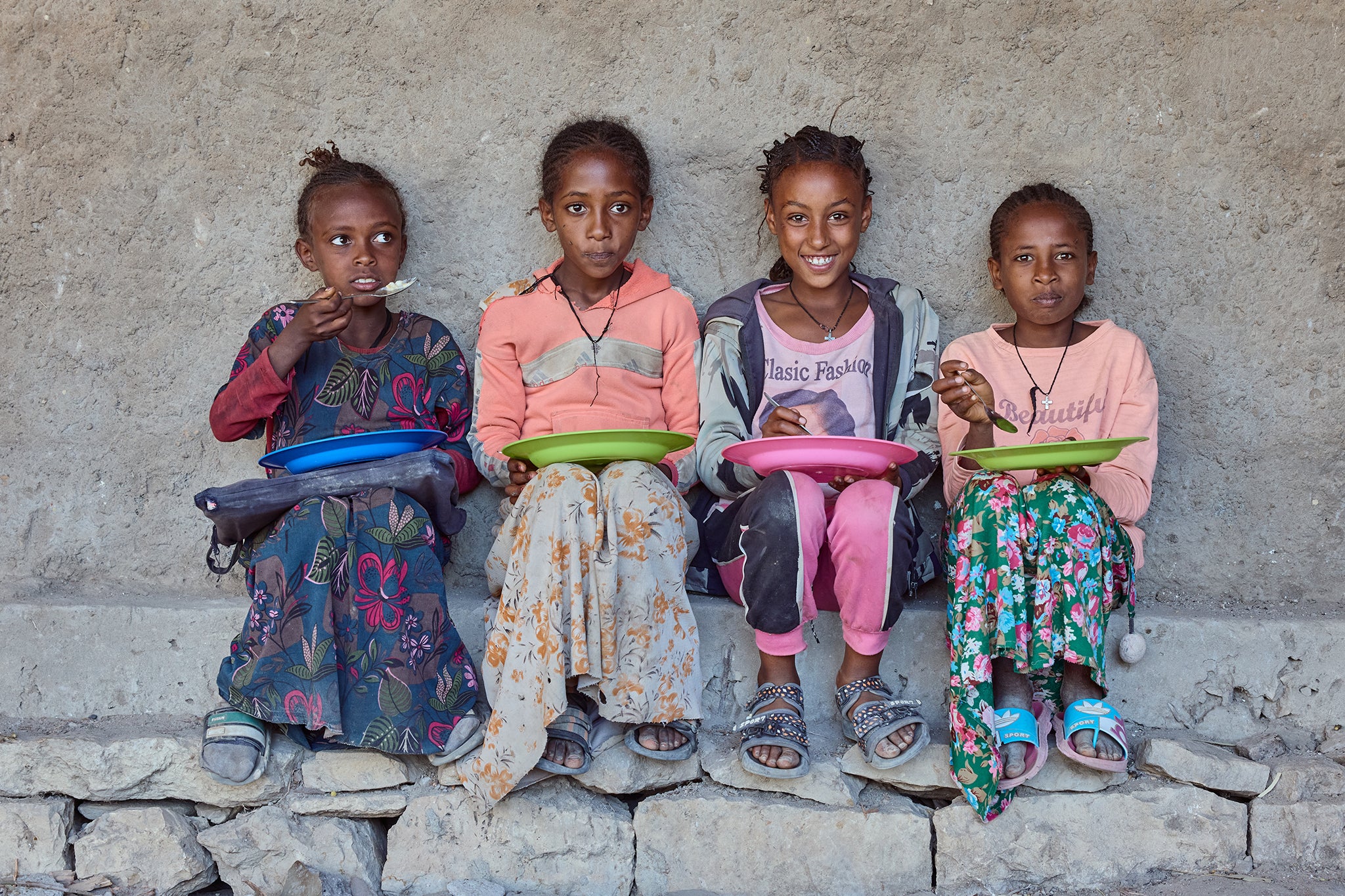
Your support helps us to tell the story
From reproductive rights to climate change to Big Tech, The Independent is on the ground when the story is developing. Whether it's investigating the financials of Elon Musk's pro-Trump PAC or producing our latest documentary, 'The A Word', which shines a light on the American women fighting for reproductive rights, we know how important it is to parse out the facts from the messaging.
At such a critical moment in US history, we need reporters on the ground. Your donation allows us to keep sending journalists to speak to both sides of the story.
The Independent is trusted by Americans across the entire political spectrum. And unlike many other quality news outlets, we choose not to lock Americans out of our reporting and analysis with paywalls. We believe quality journalism should be available to everyone, paid for by those who can afford it.
Your support makes all the difference.A charity chief has shared a rare and harrowing insight into the unfolding catastrophe in Ethiopia, saying: “It’s as extreme as anything I’ve ever witnessed.”
Mary’s Meals founder Magnus MacFarlane-Barrow is urging people to take immediate action to prevent widespread starvation following a recent trip to the war-damaged region, as the charity launches an appeal to reach children who are facing emergency levels of hunger.
More than 91 per cent of Tigray’s population has been “exposed to the risk of starvation and death” and millions are in desperate need of food aid. The region recently endured two years of deadly civil war that displaced millions and is estimated to have claimed the lives of upwards of 600,000 people.
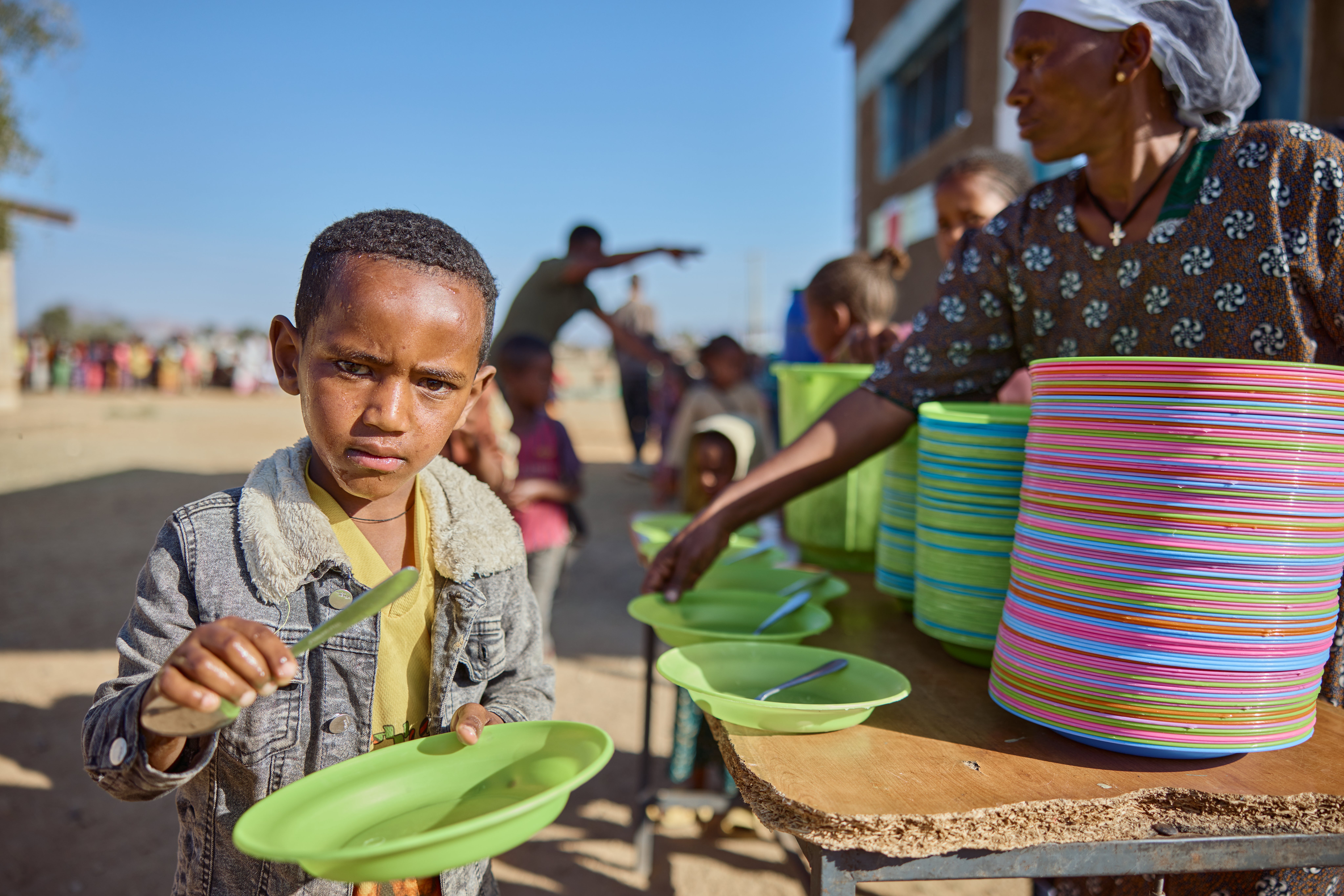
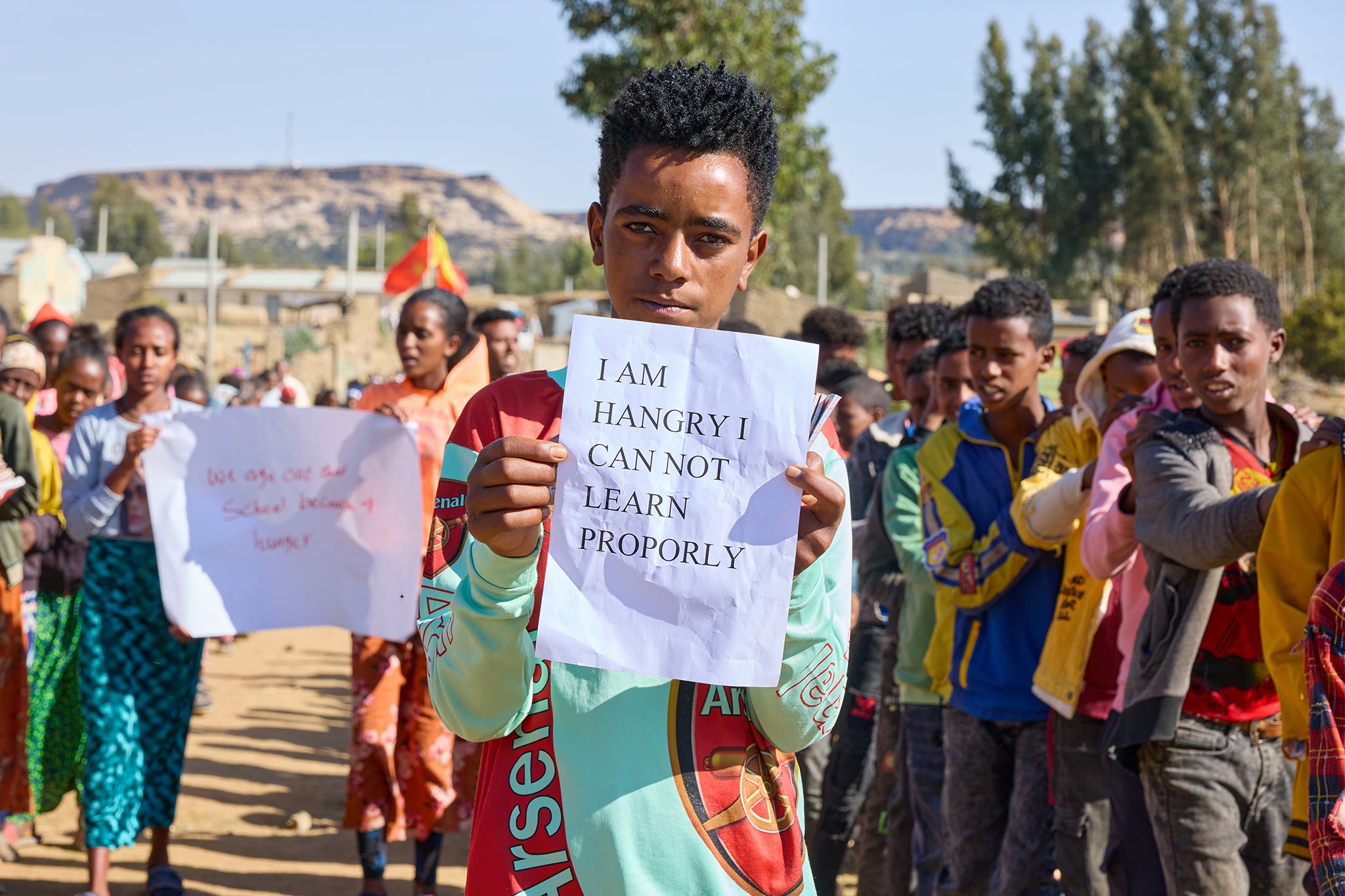
Interruptions to aid supplies in 2023, compounded by several failed rainy seasons in recent years, have accelerated the region’s humanitarian crisis. Current IPC hunger projections suggest the majority of Tigray is experiencing “emergency” levels of hunger, with predictions that “some households will likely face ‘catastrophe/famine’ by July”.
Dr Abraha Gebreegziabher, a local paediatrician, explained to Mary’s Meals that more and more children are dying from malnutrition: “We are seeing three times as many cases of malnutrition as normal, and the mortality rate is five times higher.”
Children’s futures hang in the balance as millions are out of school.
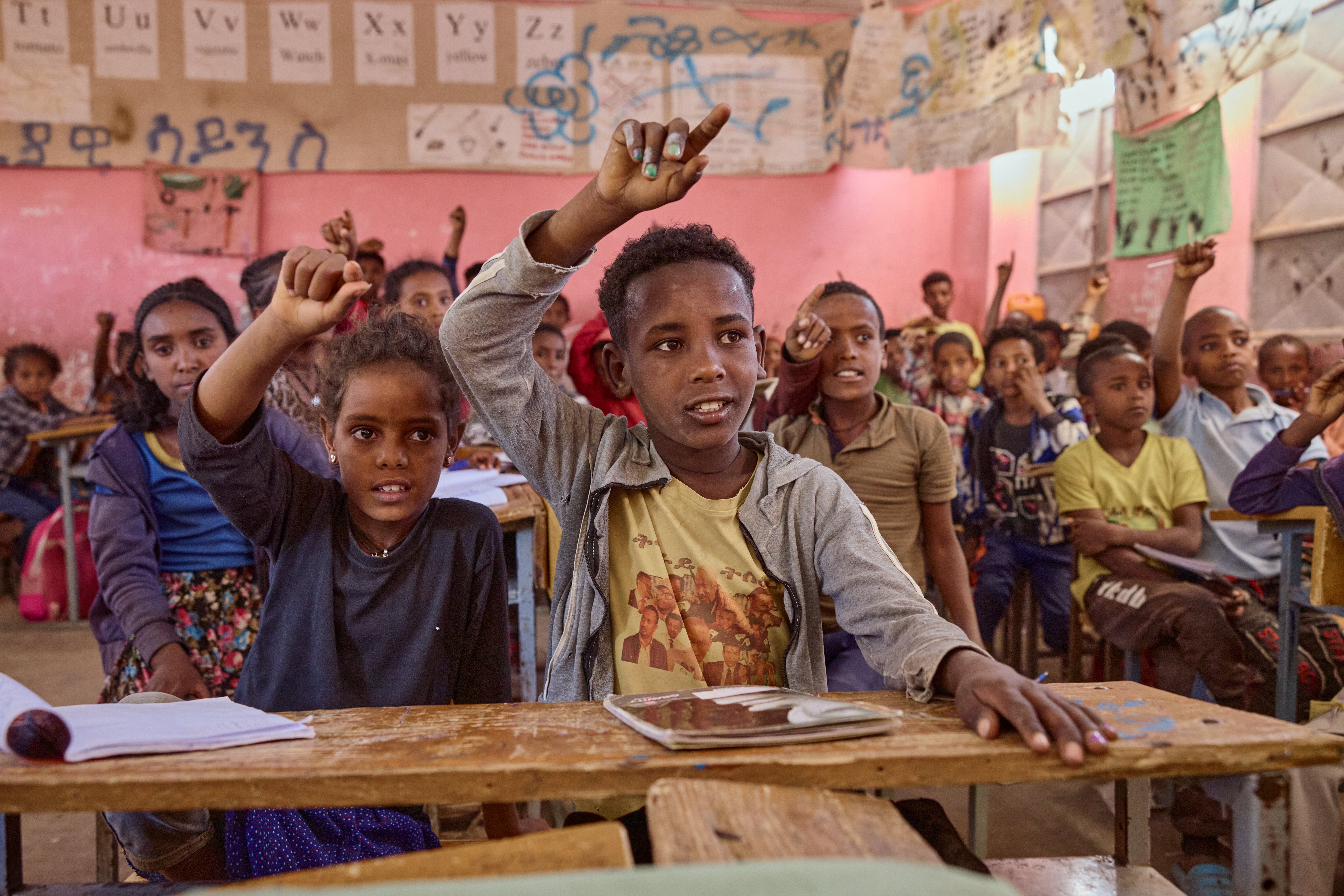
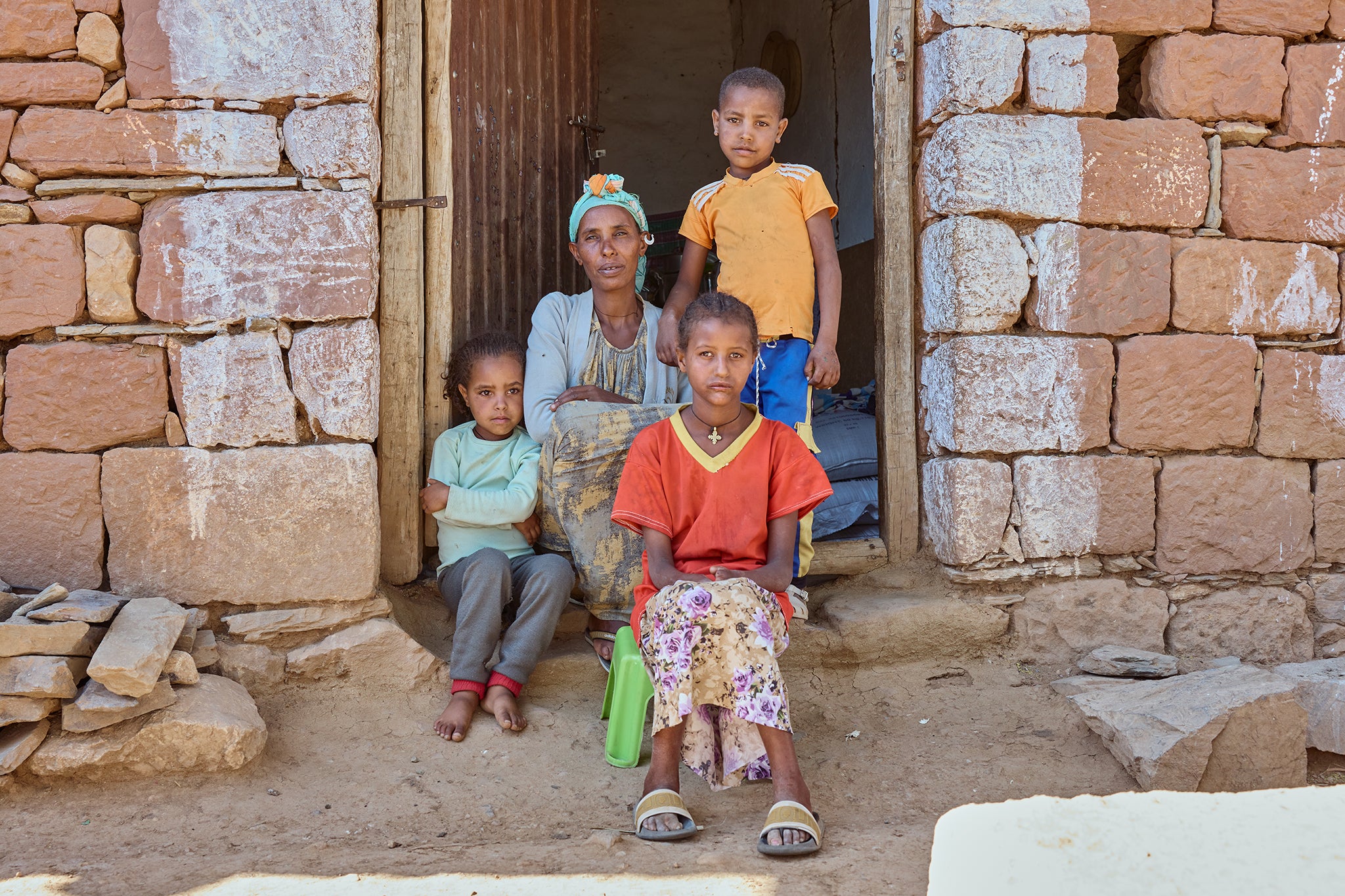
The situation is made worse by serious staff shortages and damage to school buildings sustained during the conflict.
MacFarlane-Barrow says: “People are already dying of hunger and there’s a fear of much worse to come if the world doesn’t respond. We’ve heard accounts of children who no longer feel the pain from hunger pangs, not because they have eaten but because they don’t have the energy to feel pain any more.
“It’s hard not to make comparisons between how the world was so moved to act nearly 40 years ago when Ethiopia was gripped by the infamous famine of the Eighties and the situation today that is virtually being ignored.”
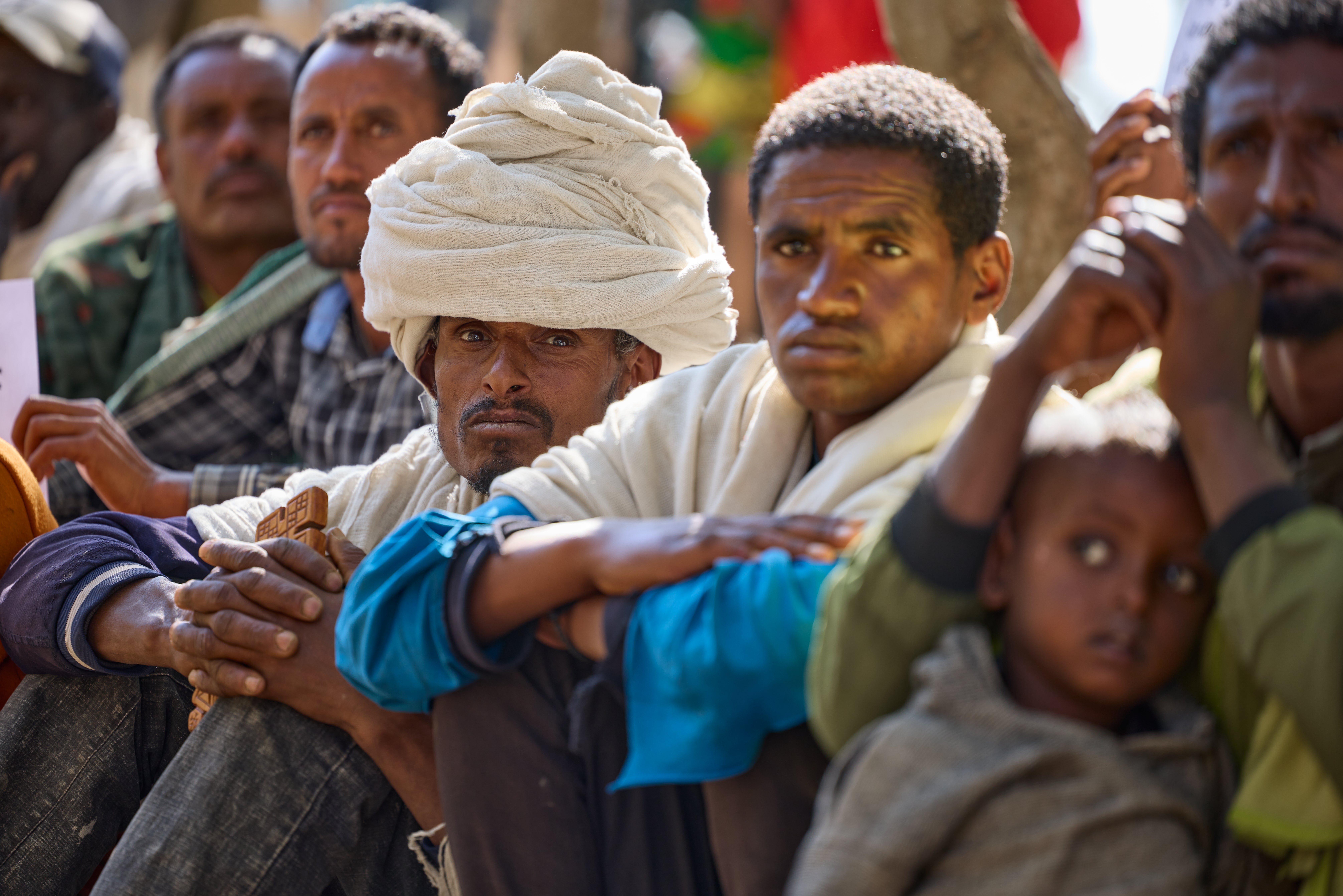
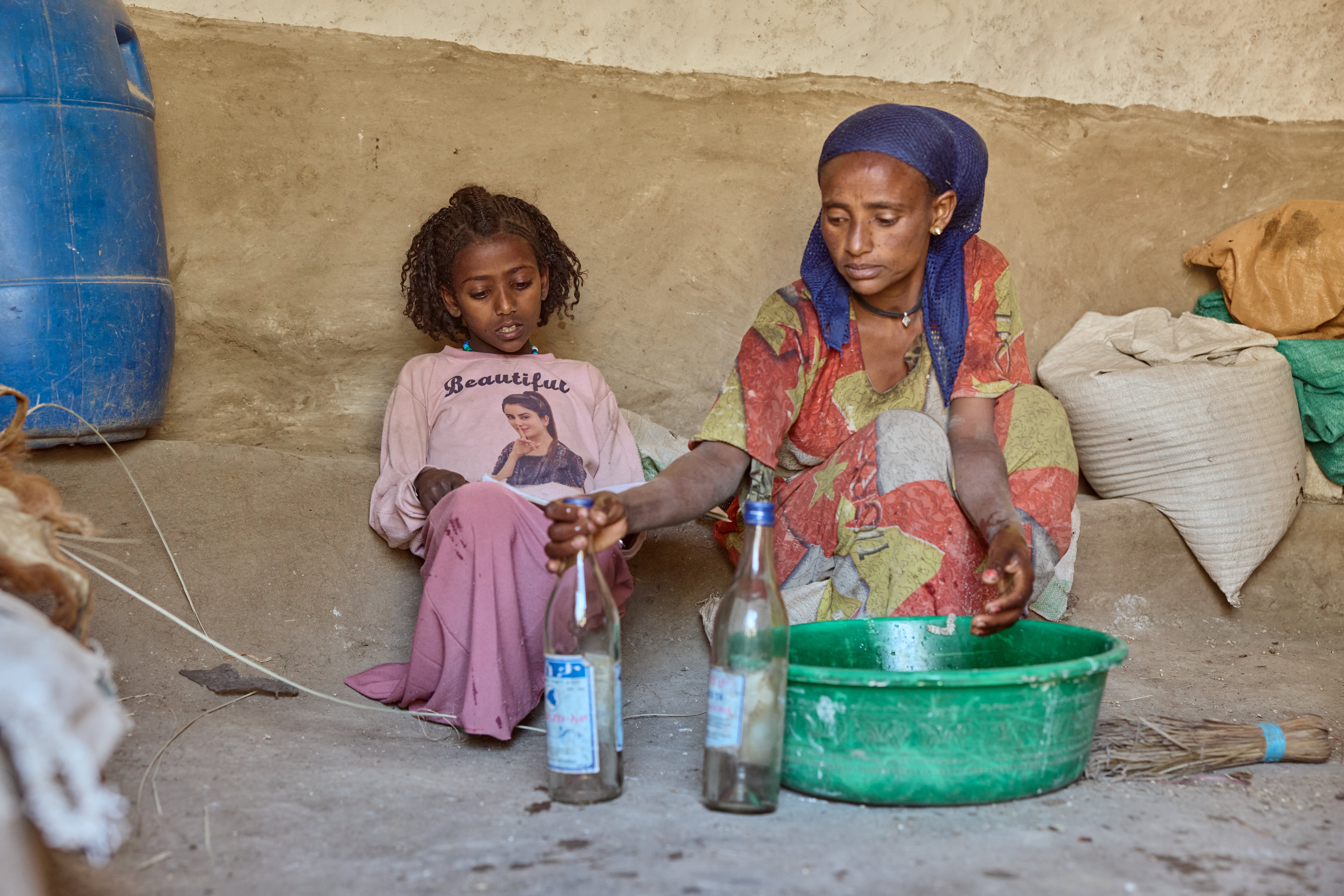
Mary’s Meals has been operating in Ethiopia since 2017. The charity works with a trusted local partner to provide nutritious school meals in places of education to generate long-term growth. During the conflict, while school feeding had to pause because schools were closed, Mary’s Meals continued to provide hot meals and other essential support to more than 30,000 internally displaced people sheltering in camps.
The charity reinstated school feeding soon after schools began reopening and is currently providing nutritious meals to more than 45,000 children every school day. Mary’s Meals’ partner is poised to extend the programme to new schools and reach thousands more children, as funds allow.
The need for simple daily meals in schools like Ara Primary is critical. When the surrounding community heard Mary’s Meals representatives were visiting recently, 15 students registered for school in just a few hours, showing the impact of even the prospect of a school feeding programme.
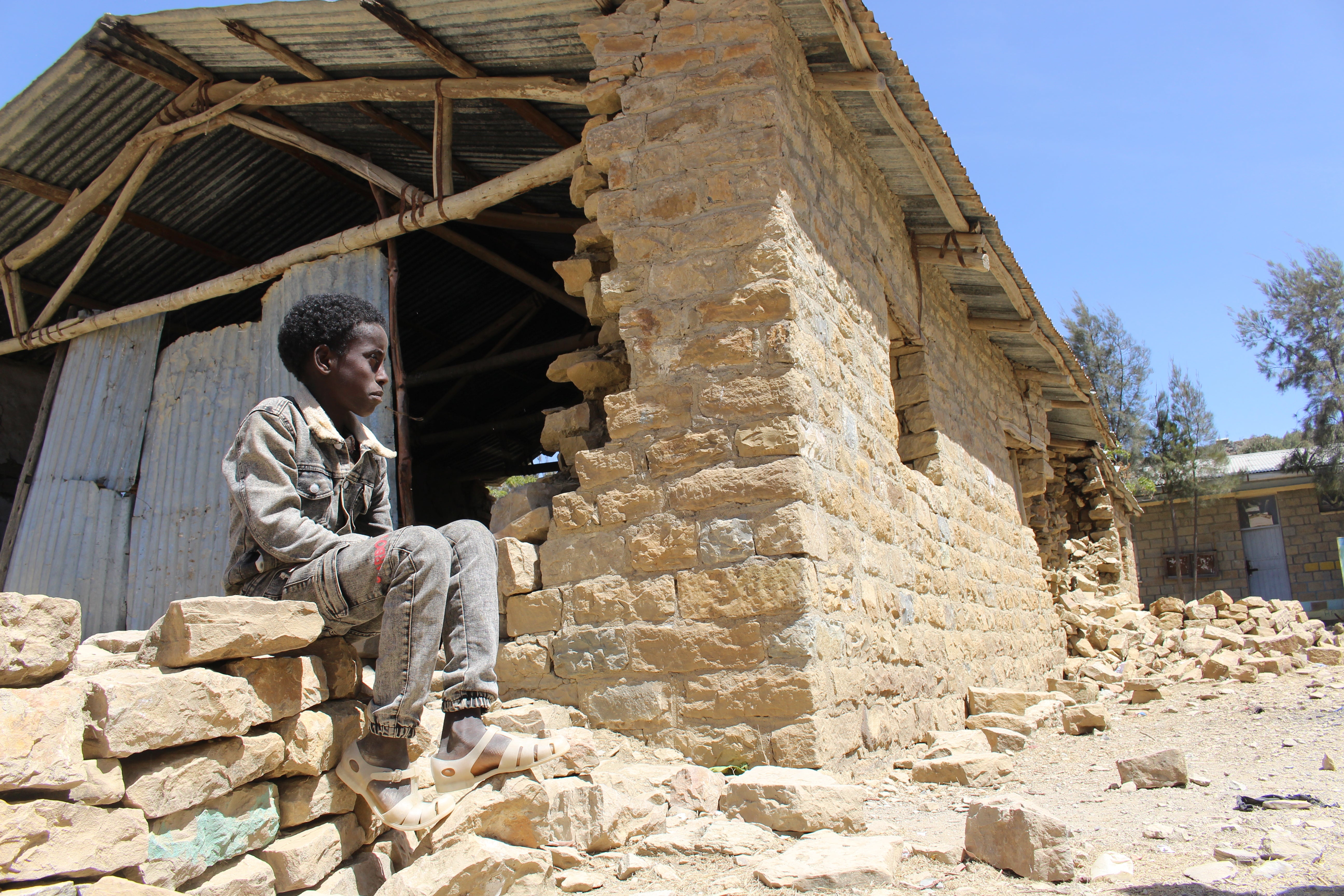
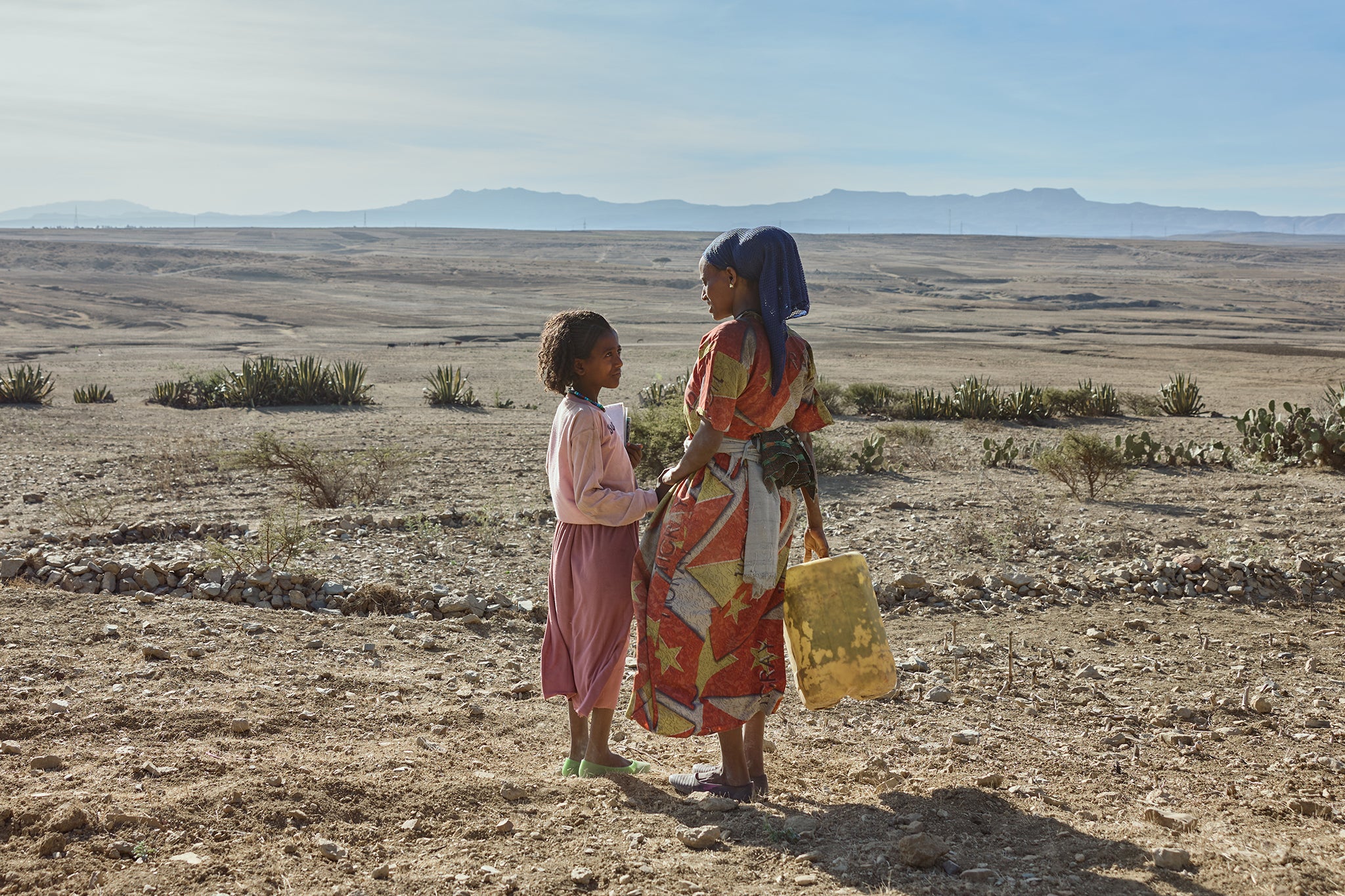
Lewte, 13, recently returned to the school. His father died two years ago – from hunger and a lack of medicine – during the brutal two-year conflict.
His mother tries to sell charcoal to help support them but unless food aid comes soon and people have something to cook, she may be unable to continue this.
The school was significantly damaged during the war and has smashed windows, blast-scarred walls, and damaged blackboards.
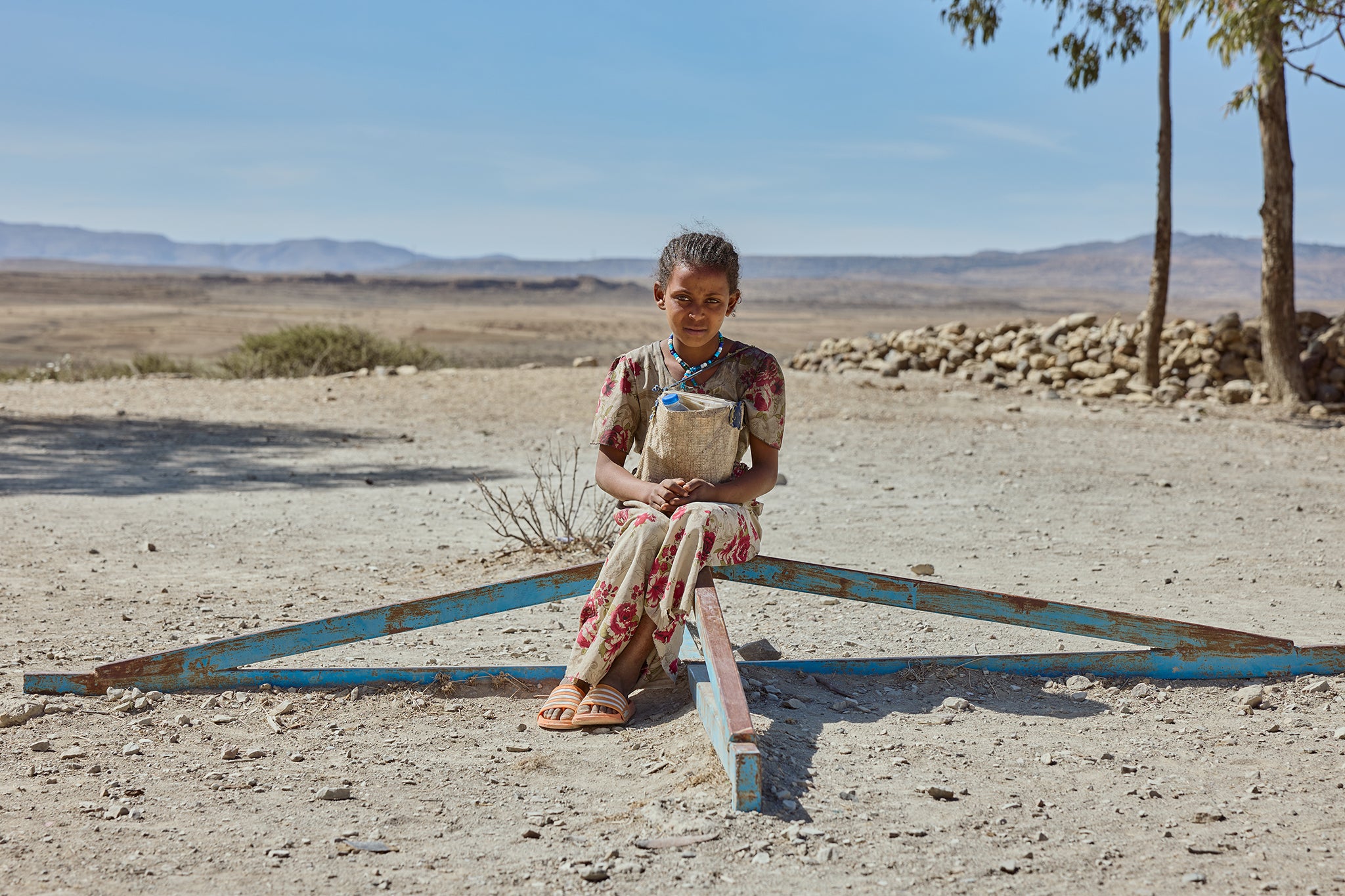
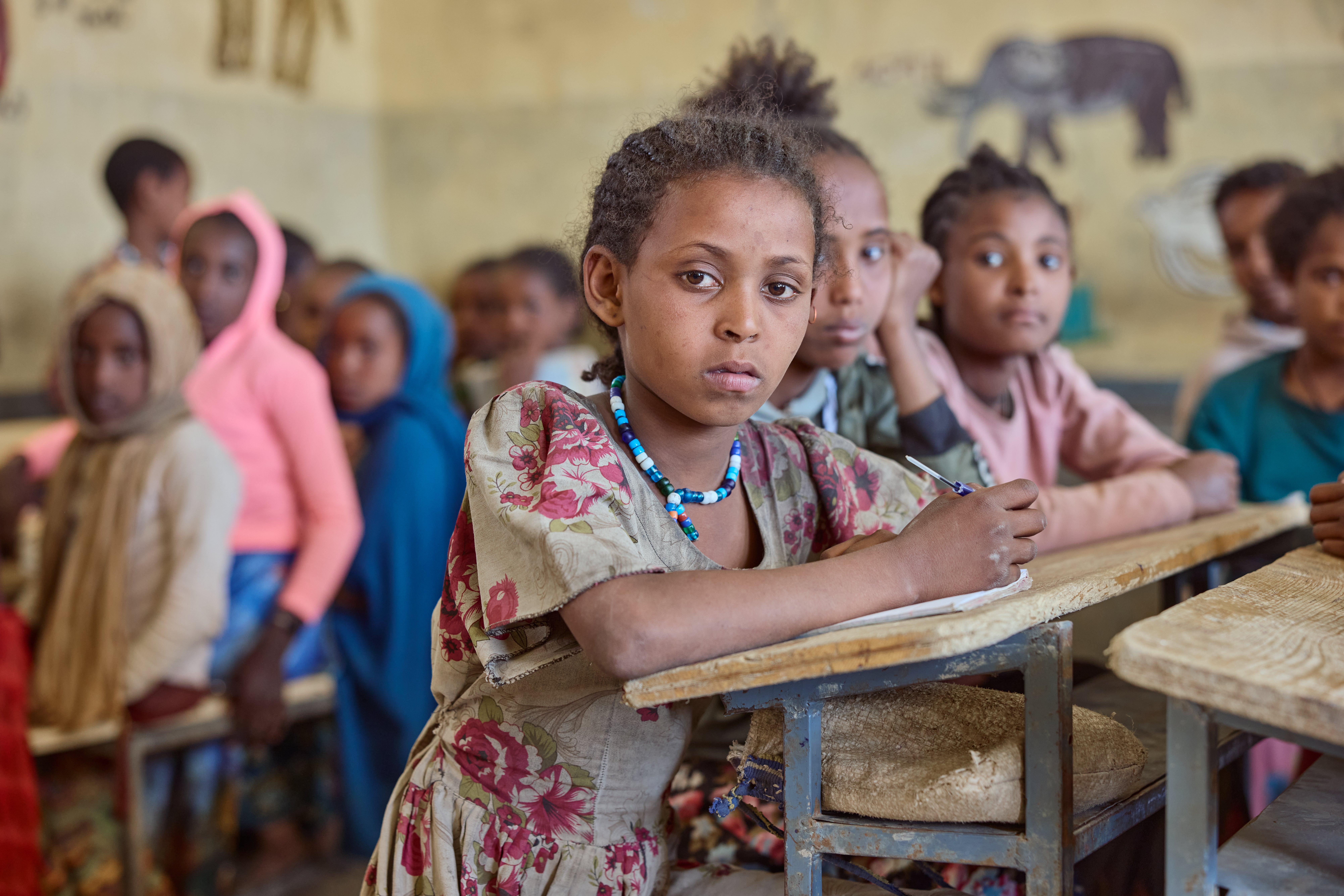
Lewte says: “Because of the drought … my mother has nothing, no money or food to help me.”
Without the offer of a daily meal, there is a very real possibility that Lewte will drop out of school. If that happens, there’s no guarantee he will find the food he needs to survive.
On a recent visit to Gendet Primary School, Mary’s Meals representatives were met by two rows of children chanting: “We need food, we need food, we need food.”
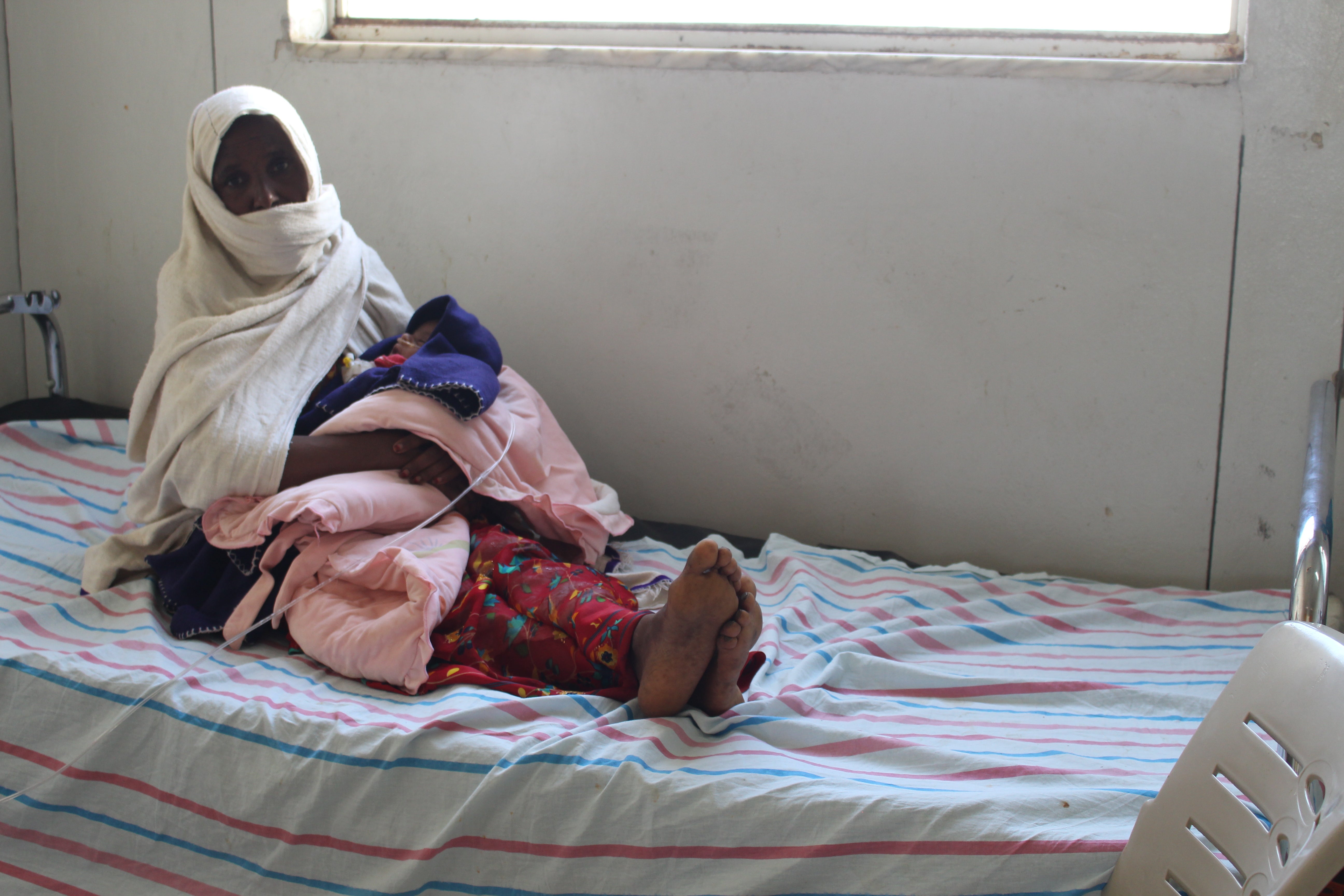
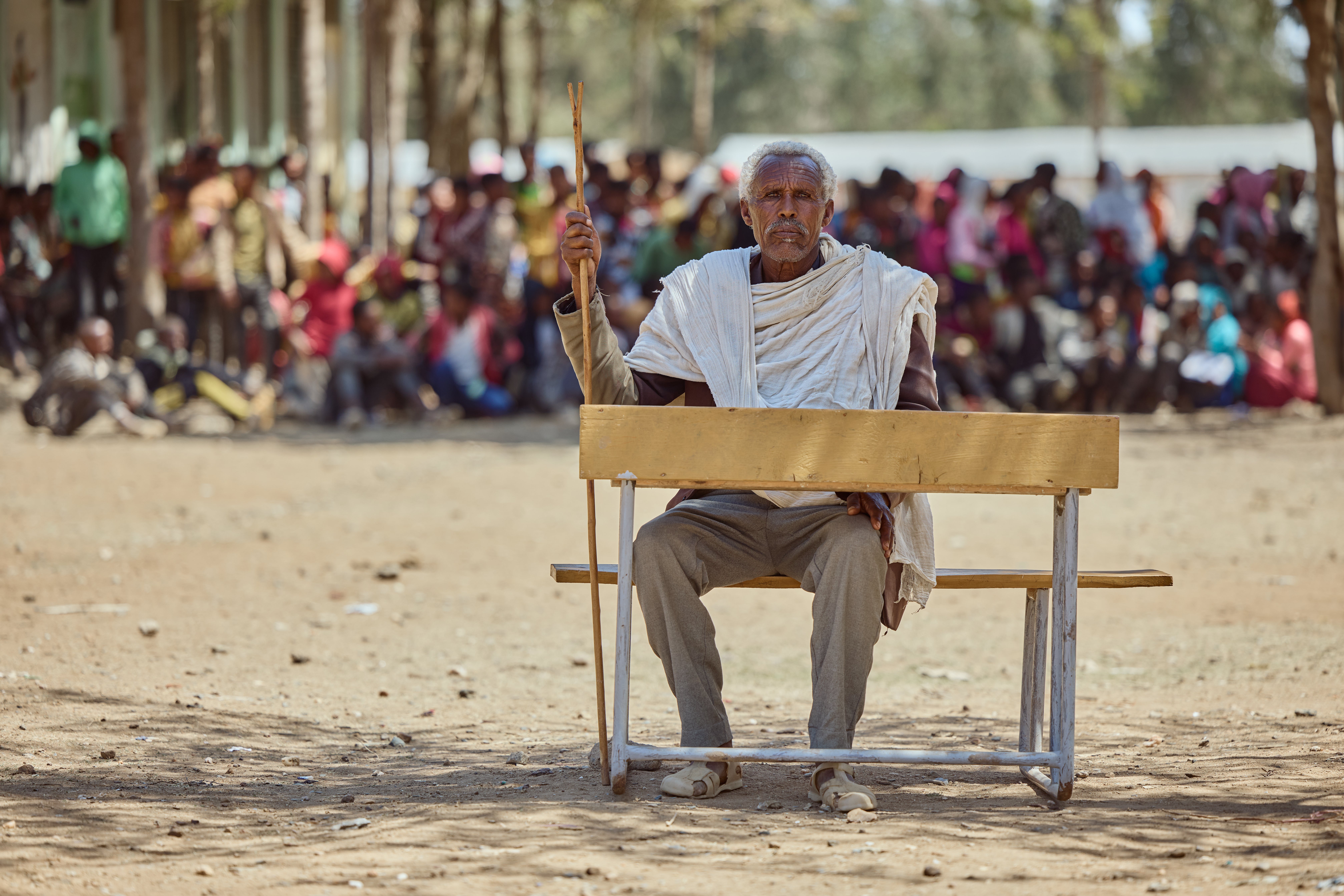
One community elder, Beyne Bsrat, said: “The troops looted everything. They slaughtered our animals and ate them for themselves, they took away our agricultural materials and they even burnt the school chairs as firewood.
“How can we imagine students are learning in this looted environment? Our challenge is not only the conflict. We are also affected by the drought. If a child is in hunger, it is even difficult to attend class, they cannot think about school or anything else, just food.
“The only option we have now is to wait for support, or die in our community.”
MacFarlane-Barrow concludes: “Everywhere we go, people are asking us to expand our programme to schools so that we can keep the children fed and in school. We can – and are ready to – roll out the Mary’s Meals programme to many more schools if we can raise the necessary funds. Clearly, the need for that is enormous.”
To find out more and donate, please visit marysmeals.org.uk
Join our commenting forum
Join thought-provoking conversations, follow other Independent readers and see their replies
Comments